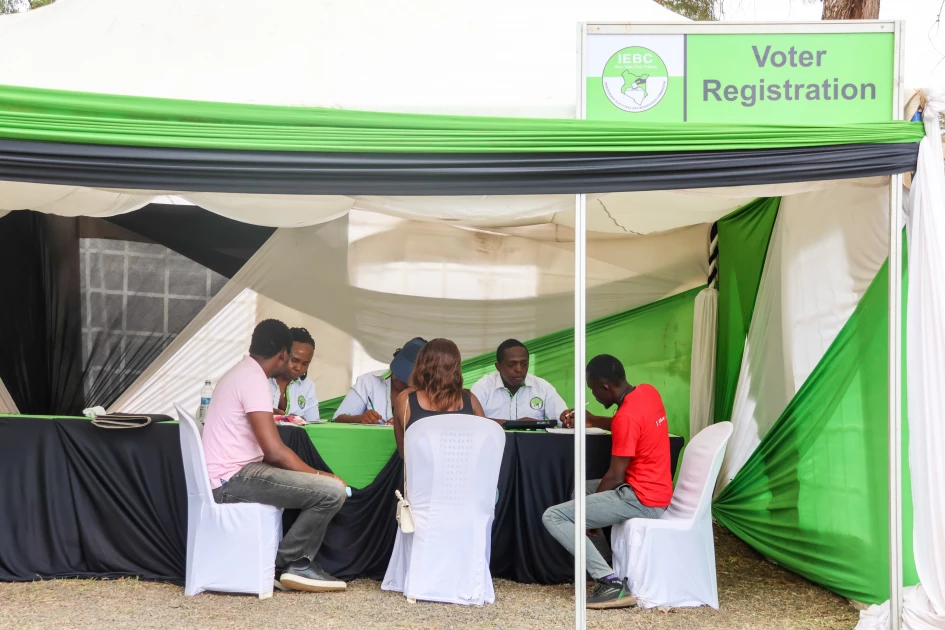ELOG wants IEBC to clarify use, storage of iris scan data in voter registration

FILE - A voter registration booth at the Nairobi International Trade Fair on September 29, 2025. | Photo: IEBC

Audio By Vocalize
The Elections Observation Group (ELOG) has called on the
Independent Electoral and Boundaries Commission (IEBC) to provide clear information
on how iris scan data collected during the ongoing voter registration will be
stored and used.
In a Wednesday statement assessing the first week of registration
exercise, ELOG said the introduction of iris scans as an additional biometric
identifier could enhance voter verification but warned that it raises public
concern over privacy and data protection.
ELOG urged the commission to explain how the biometric data
will be safeguarded in line with the Data Protection Act and to disclose
whether an impact assessment was carried out before the rollout.
The independent observer group, which comprises civil
society and faith-based organizations, also asked IEBC to clarify whether any
third parties will have access to the data and what measures are in place to
prevent misuse.
“ELOG urges IEBC to provide clear information on how iris
data will be securely stored and used in compliance with the Data Protection
Act,” the statement read in part.
IEBC is registering new voters across 278 constituencies,
excluding areas preparing for upcoming by-elections.
According to the electoral body, 7,048 new voters were
registered in the first week, alongside 259 transfers and 8 updates of voter
details.
ELOG noted that while the figures mark a “positive start,”
they represent just 0.11% of the national target of 6.3 million new voters.
The group pointed out a need for “intensified civic
mobilization and logistical support.”
Urban counties led in registration numbers, with Nairobi
(1,597), Mombasa (556), Kiambu (386), Kisii (312), and Machakos (260) recording
the highest tallies.
At the lower end were Lamu (17), Samburu (18), Tana River
(21), and Nyamira (10), areas ELOG said should be prioritized for targeted
outreach and mobile registration support.
Smaller north-eastern counties such as Mandera, Wajir, and
Garissa showed relatively higher growth compared to their 2022 voter registers,
which ELOG attributed to effective local mobilization.
At the same time, ELOG raised concern about limited public
awareness of where registration is currently taking place. The exercise is
restricted to constituency offices.
“Awareness of this limitation remains low, particularly
among youth and rural populations,” the group said, also flagging persistent
confusion over voter transfer procedures.
The group urged IEBC to strengthen public communication
through traditional and digital platforms, including partnerships with county
governments, civil society, and media outlets.
Further, it urged IEBC to publish weekly county-level
updates to enhance transparency and accountability, and ensure that counties
currently holding by-elections are prioritized once registration resumes there.


Leave a Comment